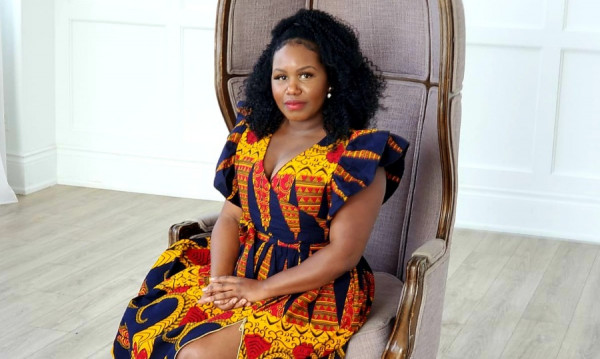Intuit, an American multinational company that specializes in financial software, commissioned an online survey completed in January 2024 of 1,500 Black small business owners and 1,500 non-Black small business owners over the age of 18 throughout Canada.
The survey found that 79 per cent of Black business owners report undercharging for their products and services. Many business owners also reported inflation as their top challenge, and those owners were more likely to report undercharging than those who did not. But even so, 22 per cent of these businesses say they are not planning to increase their prices within the next year or aren’t too sure about their decision.
There might be a reason for that, according to Mello Ayo, the vice chair of the board of trustees at the Canadian Black Chamber of Commerce, a non-profit organization created to advocate for Black-owned businesses and promote economic development within Black communities.
“If Black businesses do undercharge, it is likely a survival tactic to retain their customer base who are likely generally lower paid and often unemployed or underemployed— Black customers in Black neighbourhoods,” says Ayo.
In fact, Intuit’s survey found that of the Black businesses who are not planning to raise their prices, more than 45 per cent reported customer sensitivity as a reason why.
Catherine Addai is the founder and designer of the Toronto-based women’s clothing brand Kaela Kay, which she started to pay homage to her African roots. She uses bright, bold, and beautiful traditional fabrics, inspired by where she’s from in Ghana, West Africa. In the 10 years since she started her business, Addai says she has learned lots of hard lessons around pricing.
{https://www.tiktok.com/@kaelakayofficial/video/7340321774699089157}
“I eventually found a model that was right for me,” says Addai, though after the onset of the COVID-19 pandemic, things changed. “In the span of two years I did have to bump my prices up twice. But if I don't make it at this price, I'm going to lose money somewhere. Sometimes I have to swallow it.”
Addai says she saw a slight decline in the frequency of orders as well as purchases from the Black community after increasing her prices. Though, people were buying more pieces per order, and other non-Black communities were still buying her designs.
Pricing can definitely be a challenge, especially for a new business, says Mackenzie Campbell, co-founder of Take Khair Beauty, which she started with her sister in August 2023.
{https://www.tiktok.com/@takekhairbeauty/video/7273618574911048966}
“You don't necessarily have the capital to buy in mass amounts to benefit from cheaper rates,” says Campbell. “This is compounded by the fact that customers seem to be much more price sensitive, and there are plenty of places customers can purchase hair and beauty products in the city.”
It’s a difficult balancing act to ensure prices reflect the value provided by the business and, at the same, still attract some communities as customers. But it’s crucial—according to Intuit's survey, undercharging can contribute to inflation. Ayo explains that below-market pricing can lead to artificially higher levels of effective demand, especially for some consumer products, which in turn can lead eventually to higher-than-average prices over the medium to long run.
“I wouldn’t however attribute inflation to undercharging by Black businesses,” says Ayo. “As a whole [they] don’t occupy a prominent enough place in the economy to be able to drive the rate of excessive inflation that we have seen over the past number of years.”
Inflation, a decline in the value of money, typically measured through the consumer price index, has an effect on Black businesses too. The Consumer Price Index (CPI) annual average increased by 6.8 per cent in 2022 according to Statistics Canada. Then, in 2023, CPI rose by 3.9 per cent, the largest increase since 1991. Looking forward into the first half of 2024, the Bank of Canada projects that inflation will stay around 3 per cent.
“It’s like a double-whammy,” says Ayo. “Black businesses are already contending with higher interest charges on bank loans and restricted lines of credit. Add rising costs on top of that and you have a recipe for potential business collapse.”
The survey by Intuit found that only four out of ten Black-owned small businesses who responded reported good financial health. 95 per cent say they’ve used personal funds to cover business expenses and on average they dipped into personal funds 13 times in the last year.
“Inflation has affected our business to some extent,” shares Campbell. “Some prices we've had to adjust due to rising costs, and we're now absorbing higher interest rate fees.”
But through it all, Black business owners like Addai are grateful for the solidarity they receive from communities that support them. It makes sense, too, considering that 95 per cent of Black business owners have supported a Black business at least once in the last year according to Intuit’s survey.
“The upside is that Black business owners know how to survive tough economic times,” says Ayo.

 By
By 








